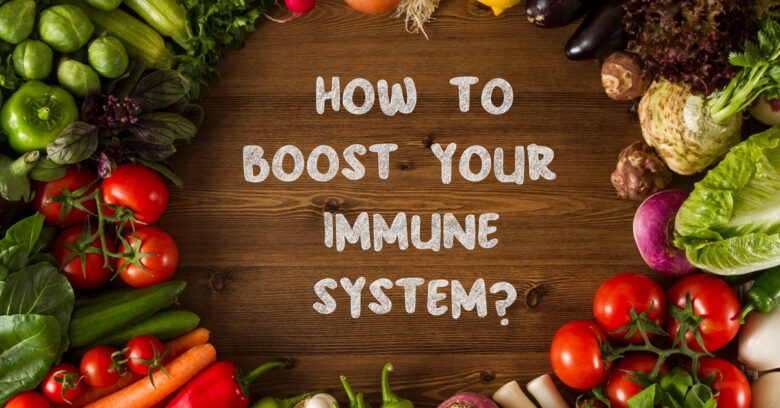Many products on the market promise to help increase immunity; however, there is no quick or simple way to build up your defenses more robustly.
A diet rich in fruits, vegetables, lean protein and low-fat or fat-free dairy will provide your body with all of the necessary nutrients for supporting and strengthening its immune system.
Eat a Healthy Diet
We’ve all seen ads touting pills and beverages to boost immunity, but leading a healthy lifestyle is the best way to build up one. Eating balanced meals, getting plenty of restful sleep and exercise, managing stress effectively and finding ways to de-stress are essential parts of maintaining optimal immunity levels.
The immune system is an intricate network of cells, tissues and organs designed to defend you against germs and other threats. It recognizes foreign invaders (known as antigens ) in your body that don’t belong there (known as antigens ), creating cells and antibodies to attack or weaken them before any potential infection can take hold.
Your immune system plays an integral part in healing from injuries and fighting infection, so to support its health make sure to eat a well-rounded diet that includes whole foods and nutrient-rich beverages such as water, unsweetened tea and coffee. Try selecting lean proteins, fruits and vegetables, whole grains and low fat or fat free dairy products as part of a varied selection. Avoid foods high in sugar or saturated fats as these could erode away at your immune system’s defenses.
Get Enough Sleep
Sleep is essential to a strong immune system. Studies show that consistent restorative sleep helps regulate immune function and decrease inflammation, as well as contributing to balanced vaccination responses and reduced allergic reactions. Conversely, insufficient or poor-quality rest may increase susceptibility to infection while simultaneously diminishing immune response capabilities.
Regular moderate-intensity exercise, in particular brisk walking, is an invaluable way to boost your immune system. Exercise improves circulation and lymph flow, which in turn allows immune cells to circulate around your body more freely to find and destroy bacteria and viruses. Meanwhile, moderate intensity activities, like brisk walking, stimulate the release of anti-inflammatory cytokines which reduce systemic inflammation; but prolonged high intensity interval training (HIIT) without adequate rest periods may increase inflammation while simultaneously suppressing immunity response.
Yoga can also help strengthen immunity. By combining breathing and stretching techniques to increase lymph flow and lower stress levels, it has proven an excellent form of exercise to bolster immunity. Although certain herbal preparations claim to boost immune systems, research has yet to confirm their claims.
Exercise Regularly
The immune system is your body’s natural defense against illness and disease, fighting everything from cold and flu viruses to parasites and cancer. However, its delicate balance must allow it to defend against invaders without overreacting and attacking healthy cells.
An ideal diet including plenty of fruits, vegetables, lean proteins and whole grains; limited saturated fats, salt and sugar intake; sufficient sleep; regular physical exercise including walking jogging and light weight training are key for building up an immune system that functions effectively. Avoid intense workouts as they could damage it.
Certain medical conditions, medications and lifestyle factors can erode your immunity and increase the likelihood of infections. Staying up-to-date with recommended vaccinations (including annual flu shots and COVID-19 vaccine) as well as regular health screenings will help strengthen your immunity while managing stress levels and maintaining a healthy weight are also key components in keeping a strong defense.
Manage Your Stress
Your immune system is a complex network of organs, white blood cells, and proteins designed to defend you against germs, infections, diseases, and injuries. When something goes amiss it will activate an automatic response and help get things under control quickly and effectively.
Your skin and mucous membranes provide your first line of defense against germs, but your immune system takes over, using special cells to engulf and kill any invading bacteria or viruses, as well as producing antibodies that remember those germs so they can fight them again in the future.
Immune system function can be strengthened through eating a nutritious, balanced diet of fruits, vegetables, lean protein and whole grains and getting sufficient restful sleep. Other essential health habits include not smoking or drinking excessively and remaining physically active. Stress can have a damaging impact on immunity – try exercising, spending time with loved ones or engaging in hobbies to manage this pressure; simply sitting still watching television or video games only exacerbates the issue further over time.
Get Vaccinated
Vaccines provide protection from life-threatening illnesses. Working in tandem with our bodies’ natural defense systems, vaccines can help keep us protected against illnesses like tetanus, whooping cough (pertussis), measles, rubella and influenza. Furthermore, vaccines help build immunity in people of all ages from these dangerous infections and diseases that could prove deadly throughout their lives.
Laboratory researchers first identify an antigen — something that causes disease such as bacteria or viruses — then destroy or alter it so it cannot cause illness. They mix this antigen with something to activate the immune system such as protein from bacteria’s surface or virus cell wall and combine this mixture with something known as an “antigen-presenting cell”, which allows other immune cells to recognize it more readily.
Immune cells produced antibodies that attack and destroy germs that come into contact with antigens; when an antigen comes into contact with our bodies, our immune systems produce antibodies to produce immunity against that particular disease – thus making sure people who receive vaccines won’t contract it later on in their lives. Immunity gained through vaccination typically lasts a long time.




